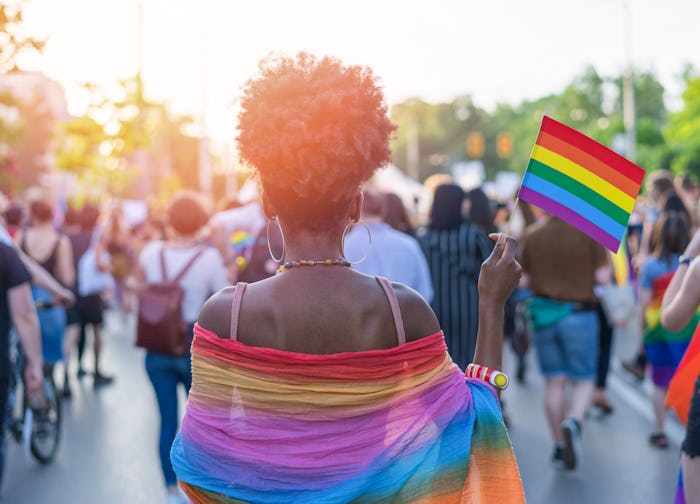News

New Survey Highlights How LGBTQ+ Kids Need Support From Their Families & Communities
The Trevor Project’s 2024 survey highlights an ongoing mental health crisis, but also actionable steps that offer hope to kids across the country.
While LGBTQ+ teens and young people are often at the center of legislation and media coverage, in a cruel irony, their voices are not always among those highlighted in the creation of those laws and news articles. We hear about queer communities but less often from them. But recently, The Trevor Project gathered experiences from more than 18,000 LGBTQ+ young people, ages 13 to 24, in its 2024 U.S. National Survey on the Mental Health of LGBTQ+ Young People, providing valuable insight into these populations directly from the source.
The Trevor Project is the leading suicide prevention and crisis intervention organization for LGBTQ+ youth, and released the sixth edition of this survey on May 1. Its findings were at once heartbreaking but hopeful, underscoring the vital necessity of — and troubling lack of access to —mental health resources and community support for young people. According to the survey, LGBTQ+ young people continue to report high rates of mental health challenges, including...
- Anxiety and/or depression (between 49% ad 67% depending on age)
- Bullying (49% in those aged 13 to 17)
- Physical threat and harm (23%)
- Suicide risk (39% overall and 46% among trans and non-binary folks)
What’s more, while 84% of those surveyed expressed a desire for mental healthcare, 50% of those respondents were unable to access it, largely due to fear of stigma and cost. And yet across the board, the survey found that affirmation from families, schools, and communities (e.g. respecting pronouns, gender neutral bathrooms) was associated with lower odds of suicide risk.
“The Trevor Project’s U.S. National Survey illustrates a need to better support the mental health and well-being of LGBTQ+ young people, a group that we know consistently experiences higher rates of suicide compared to their peers,” Dr. Ronita Nath, Vice President of Research at The Trevor Project, said in a statement. “Once again, this year’s survey shows that considering or attempting suicide is not uncommon among LGBTQ+ young people. However, many of the contributing risk factors for suicide are preventable, and often rooted in victimizing behaviors of others.”
That victimization can be observed at a macro level. In fact, 90% of those surveyed said that politics negatively affected their mental health, with a majority (53%) citing it as affecting their well-being “a lot.” While the majority of anti-LGBTQ+ legislation neither advances past proposal nor becomes law, the discourse surrounding these anti-trans and anti-queer bills is nevertheless demoralizing. Nearly half of transgender and nonbinary young people in particular (45%) reported that they and/or their families have considered moving to a different state because of their state’s politics and laws.
“Much of our efforts to address the public health crisis of suicide among LGBTQ+ young people are made that much harder by the ongoing wave of anti-LGBTQ+ policies pushed by extremist lawmakers across the country,” Janson Wu, Senior Director of State Advocacy and Government Affairs at The Trevor Project, said. “With such striking numbers and families literally wanting to uproot their homes to seek safety, lawmakers must seriously reconsider the real and damaging impact that their anti-LGBTQ+ policies and rhetoric create. No ‘political victory’ should be worth risking the lives of young people.”
This sixth annual survey also marks the first time respondents have been asked to include messages of encouragement, support, and hope to other young people like them. Eighteen were included in the official report.
“You have millions of queer siblings across the world who would accept you for who you are,” reads one. “It is the most rewarding experience to live surrounded by people who love you for your whole, true self.”
“You don’t have to figure it out now, and you’re allowed to not know,” assures a second. “Figuring it out is for YOU first and foremost, so do it on your own time and in your own way.”
“We deserve happiness,” reads another. “We’re allowed to want a future of our own design with the people we love. One day I’ll get that and so will you.”